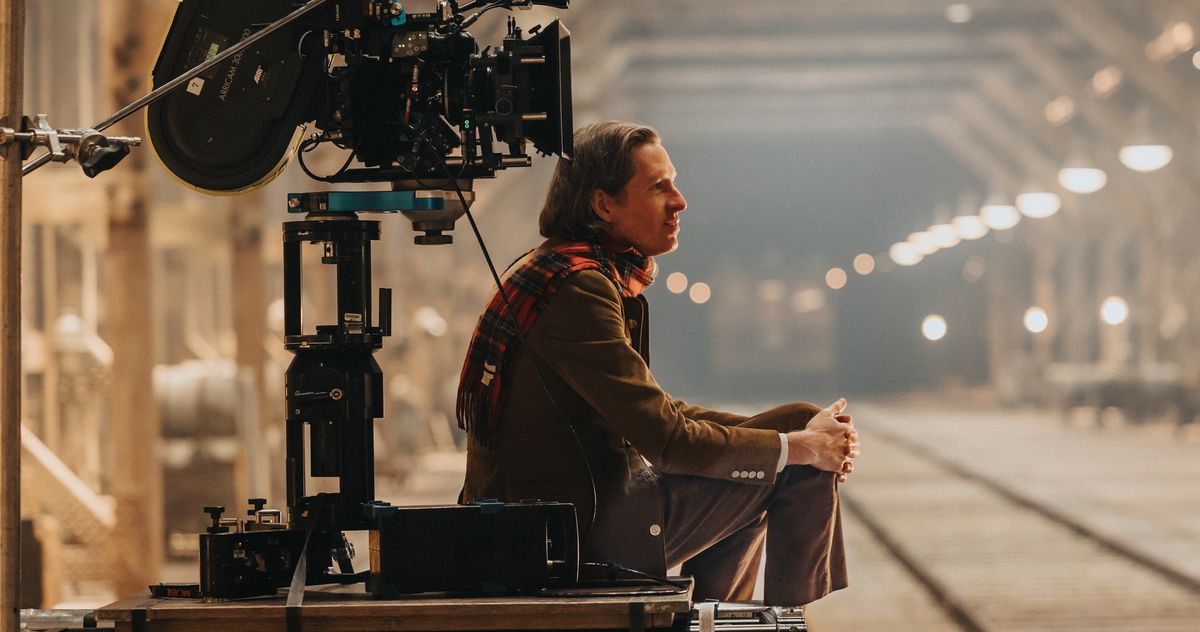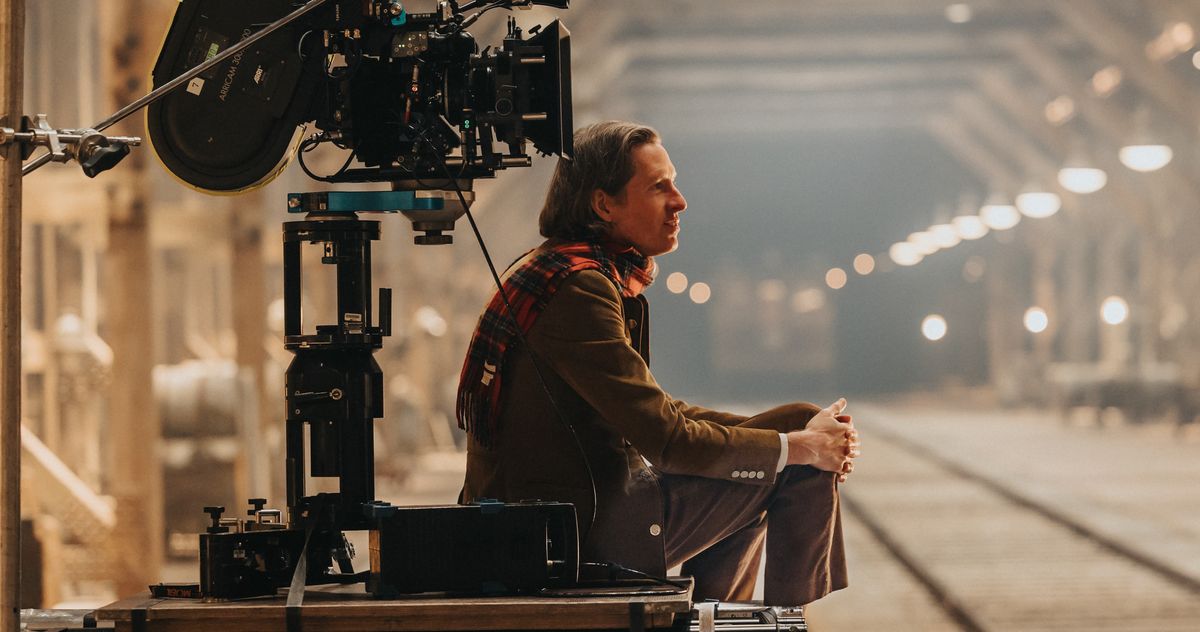Beyond The Visuals: Unpacking The Existential Themes In Wes Anderson's Filmography

Welcome to your ultimate source for breaking news, trending updates, and in-depth stories from around the world. Whether it's politics, technology, entertainment, sports, or lifestyle, we bring you real-time updates that keep you informed and ahead of the curve.
Our team works tirelessly to ensure you never miss a moment. From the latest developments in global events to the most talked-about topics on social media, our news platform is designed to deliver accurate and timely information, all in one place.
Stay in the know and join thousands of readers who trust us for reliable, up-to-date content. Explore our expertly curated articles and dive deeper into the stories that matter to you. Visit Best Website now and be part of the conversation. Don't miss out on the headlines that shape our world!
Table of Contents
Beyond the Visuals: Unpacking the Existential Themes in Wes Anderson's Filmography
Wes Anderson. The name conjures images of meticulously crafted symmetrical shots, pastel palettes, and quirky characters. His films are visual feasts, undeniably. But beneath the surface of the whimsical aesthetic lies a surprisingly profound exploration of existential themes, consistently weaving their way through his unique cinematic tapestry. This article delves beyond the instantly recognizable style to examine the deeper philosophical questions Anderson poses in his celebrated filmography.
The Search for Meaning in a Chaotic World
Anderson's characters often grapple with a profound sense of displacement and a yearning for connection in a world that feels inherently chaotic. From the dysfunctional family dynamics in The Royal Tenenbaums to the melancholic journey of self-discovery in Moonrise Kingdom, a recurring motif is the search for belonging and purpose. This isn't merely a coming-of-age narrative; it's a lifelong struggle depicted with both humor and poignant honesty. The characters aren't simply quirky; they are searching, flawed individuals attempting to navigate the complexities of life and find their place within it.
Nostalgia and the Illusion of the Past
Many Anderson films are steeped in nostalgia, revisiting idealized versions of the past or exploring the bittersweet nature of memory. This isn't simply a romanticization of bygone eras; it's a reflection on how our memories shape our understanding of ourselves and the world. In films like Fantastic Mr. Fox and The Grand Budapest Hotel, the past is presented as both alluring and ultimately unattainable, a constant reminder of time's relentless march. This preoccupation with the past highlights the transient nature of life and the struggle to hold onto cherished moments.
Death, Loss, and the Acceptance of Mortality
The shadow of mortality hangs heavy over many of Anderson's narratives. The death of a parent, the loss of innocence, the inevitable passage of time – these are not merely plot points but existential realities confronted with a surprising degree of grace. The French Dispatch, for example, acts as a poignant meditation on legacy and the ephemeral nature of artistic creation. The characters' acceptance, or lack thereof, of mortality adds a layer of complexity to their already intricate personalities.
Family, Dysfunction, and the Bonds of Kinship
Family, in all its messy glory, is a central theme in Anderson's work. From the eccentric Tenenbaums to the quirky family in Bottle Rocket, he depicts familial relationships with both humor and heartbreaking honesty. The dysfunctional dynamics are not merely comedic devices; they serve to highlight the complexities of human connection and the enduring power of familial bonds, even in the face of profound differences and conflict.
The Power of Storytelling and the Creation of Meaning
Ultimately, Anderson’s films suggest that storytelling itself is a powerful tool for making sense of the world and finding meaning in the face of existential uncertainty. His characters often find solace and connection through shared narratives and the creation of their own stories. This meta-narrative aspect further underscores the director’s own fascination with the power of film to explore and illuminate the human condition.
Conclusion:
Wes Anderson's films are more than just visually stunning works of art. They are insightful explorations of the human condition, grappling with profound existential themes that resonate deeply with audiences. By examining the deeper meaning behind his signature style, we gain a richer appreciation for the complex and thought-provoking narratives he so masterfully constructs. His work offers a unique blend of humor and melancholy, prompting viewers to contemplate their own place in the world and the enduring search for meaning in a life often marked by both joy and sorrow. What are your thoughts on the existential themes in Wes Anderson's films? Share your interpretations in the comments below!

Thank you for visiting our website, your trusted source for the latest updates and in-depth coverage on Beyond The Visuals: Unpacking The Existential Themes In Wes Anderson's Filmography. We're committed to keeping you informed with timely and accurate information to meet your curiosity and needs.
If you have any questions, suggestions, or feedback, we'd love to hear from you. Your insights are valuable to us and help us improve to serve you better. Feel free to reach out through our contact page.
Don't forget to bookmark our website and check back regularly for the latest headlines and trending topics. See you next time, and thank you for being part of our growing community!
Featured Posts
-
 Consumer Warning High Levels Of Arsenic And Cadmium Found In Popular Rice Brands
May 17, 2025
Consumer Warning High Levels Of Arsenic And Cadmium Found In Popular Rice Brands
May 17, 2025 -
 Trumps Ukraine Stance Awaiting Putins Cooperation
May 17, 2025
Trumps Ukraine Stance Awaiting Putins Cooperation
May 17, 2025 -
 Friendship Films Detroit Success Top Ten Markets And Specialty Preview
May 17, 2025
Friendship Films Detroit Success Top Ten Markets And Specialty Preview
May 17, 2025 -
 Wes Andersons Cinematic World A Study In Underlying Gloom And Nostalgia
May 17, 2025
Wes Andersons Cinematic World A Study In Underlying Gloom And Nostalgia
May 17, 2025 -
 Eurovision Qualification Israels Victory Overshadowed By Unrest
May 17, 2025
Eurovision Qualification Israels Victory Overshadowed By Unrest
May 17, 2025
Latest Posts
-
 Trump Claims Meeting With Putin Necessary Before Action On Ukraine
May 18, 2025
Trump Claims Meeting With Putin Necessary Before Action On Ukraine
May 18, 2025 -
 Proposed Farm Inheritance Tax Changes Face Year Long Delay Call From Mps
May 18, 2025
Proposed Farm Inheritance Tax Changes Face Year Long Delay Call From Mps
May 18, 2025 -
 Dodgers Defeat Athletics Ohtanis Two Home Runs Rushings Strong Mlb Debut
May 18, 2025
Dodgers Defeat Athletics Ohtanis Two Home Runs Rushings Strong Mlb Debut
May 18, 2025 -
 Israels Eurovision Bid Qualification Overshadowed By Ongoing Unrest
May 18, 2025
Israels Eurovision Bid Qualification Overshadowed By Ongoing Unrest
May 18, 2025 -
 Man Charged In Arson Cases Linked To Uk Pm Keir Starmer
May 18, 2025
Man Charged In Arson Cases Linked To Uk Pm Keir Starmer
May 18, 2025
